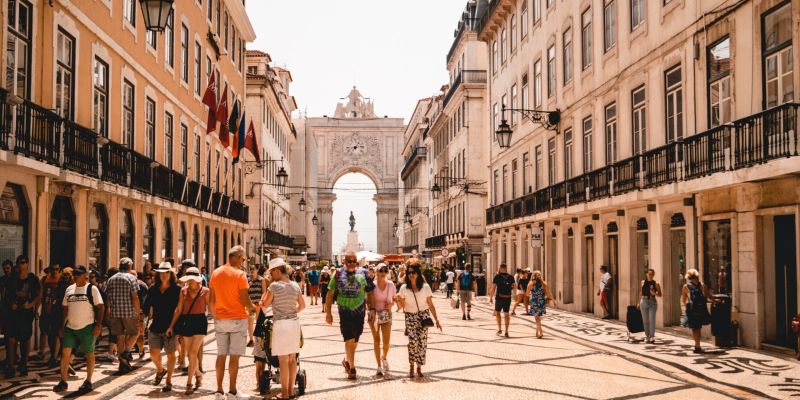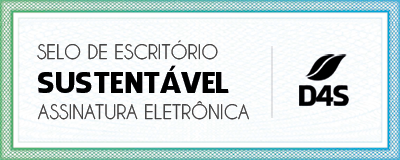
Visas for Those Who Want to Work in Portugal: Complete Guide
Portugal has become an increasingly popular destination for professionals from all over the world. The quality of life, pleasant climate, safety and economic growth are some of the factors that attract foreign workers to the country. However, to work legally in Portugal, you need to obtain the right visa. In this article, we’ll explore the main types of visas available to those wishing to work in Portugal, from the entrepreneur visa to the job-seeker visa.
1. Entrepreneur visa (D2)
What is the D2 Visa?
The D2 visa is for entrepreneurs who want to set up a business in Portugal or work independently. This visa is ideal for people who have a solid business plan and want to invest in the Portuguese economy. The D2 visa is an excellent option for those who want to establish a business presence in Portugal, whether as individual entrepreneurs, freelancers or investors.
Who can apply?
They can apply for a D2 visa:
- Entrepreneurs wishing to set up a business in Portugal.
- Freelancers or independent professionals who want to work independently.
- Investors wishing to invest in existing businesses in Portugal.
Required documents
To apply for the D2 visa, you must present:
- Detailed business plan demonstrating the economic viability of the project.
- Proof of financial means demonstrating the ability to sustain the business and oneself in Portugal.
- Personal documents, such as a valid passport, criminal record and proof of residence.
Advantages of the D2 Visa
- Freedom to Entrepreneur: The D2 visa allows you to start and run your own business in Portugal.
- Residence Permit: Once you have established your business, you can apply for a residence permit, allowing you to live and work in Portugal legally. It is always important to remember that all visas must be applied for before entering Portuguese territory, from the competent authority in your country of residence. See the official list.
- Mobility in the European Union: As a legal resident in Portugal, you will have easier access to travel and business in other European Union countries.
2. Work Visa (D1)
What is the D1 Visa?
The D1 visa is intended for foreign workers who already have an employment contract or promise of an employment contract signed with a company in Portugal. This visa allows the holder to work legally in Portugal, and is ideal for those who already have a confirmed job offer before arriving in the country.
Who can apply?
They can apply for a D1 visa:
- Workers who have a valid employment contract or promise of employment contract with a Portuguese company.
- Qualified professionals who have been recruited to work in Portugal.
Required documents
To apply for a D1 visa, you must present:
- Employment contract signed by the company in Portugal.
- Personal documents, such as a valid passport, criminal record and proof of residence.
- Proof of Professional Qualifications, if applicable.
Advantages of the D1 Visa
- Direct access to the job market: The D1 visa allows you to start working in Portugal immediately upon arrival.
- Professional stability: With an employment contract in hand, you’ll have a stable base for living and working in Portugal.
- Possibility of Family Reunification: The D1 visa allows your immediate family members to join you in Portugal, with the possibility of working as well.
3. Work-seeker visa
What is a Job Seeker’s Visa?
The job-seeker visa is a new type of visa that allows foreign citizens to enter Portugal for the purpose of seeking employment. This visa has a maximum duration of 6 months and authorizes the holder to work while looking for a job.
Who can apply?
You can apply for this visa:
- Professionals who want to explore the job market in Portugal and do not yet have a job offer.
- Recent graduates looking for their first job in Portugal.
Required documents
To apply for a work visa, you need to present:
- Proof of means of subsistence during your stay in Portugal.
- Personal documents, such as a valid passport, criminal record and proof of residence.
Advantages of the Jobseeker’s Visa
- Flexibility: Allows you to look for a job directly in Portugal, increasing your chances of success.
- Temporary Work Permit: While you are looking for a job, you can work temporarily.
- Possibility of Transitioning to a Residence Permit: Once you have found a job, you can apply for a residence permit to work.
4. D7 visa
What is the D7 Visa?
The D7 visa is traditionally intended for people with passive income, such as pensioners, investors or retirees, who wish to live in Portugal. Although the main purpose of the D7 visa is not to work, it does not prohibit the holder from working in Portugal.
Who can apply?
They can apply for a D7 visa:
- Pensioners with stable incomes.
- Investors who live off passive income.
- Retired people who want to live in Portugal.
Required documents
To apply for the D7 visa, you must present:
- Proof of passive income sufficient to live in Portugal.
- Personal documents, such as a valid passport, criminal record and proof of residence.
- Proof of accommodation in Portugal.
Advantages of the D7 Visa
- Flexibility: Although the main purpose is residence, the holder can work in Portugal.
- Financial Stability: This is ideal for those with passive income who are looking for a quiet lifestyle in Portugal.
- Mobility in the European Union: The D7 visa allows you to live and travel freely in the European Union.
5. Family Reunification
What is Family Reunification?
Family reunification is a right granted to family members of foreign citizens legally resident in Portugal. This right allows family members to join the visa holder in Portugal and, importantly, allows them to work legally in the country.
Who can apply?
Generally speaking, who can apply for family reunification:
- Spouses or unmarried partners.
- Dependent children (minors or students).
- Dependent parents (provided they can prove financial dependence), or are over 65.
Required documents
In order to apply for family reunification, you must present:
- Proof of Family Relationship (e.g. marriage or birth certificates).
- Family members’ personal documents.
- Proof of residence and means of subsistence in Portugal.
Advantages of Family Reunification
- Family Unit: Allows you to bring your family to Portugal.
- Work permit: Reunited family members can legally work in Portugal.
- Access to Public Services: The family will have access to health, education and other public services in Portugal.
6. Student visa
What is a Student Visa?
The student visa is intended for foreign citizens who want to study in Portugal. This visa allows students to work while they study, as long as the work is compatible with their study hours and is related to their area of study.
Who can apply?
They can apply for a student visa:
- Students admitted to higher education institutions in Portugal.
- Researchers or trainees wishing to carry out studies or research in Portugal.
Required documents
To apply for a student visa, you need to present:
- Letter of acceptance from the educational institution in Portugal.
- Personal documents, such as a valid passport, criminal record and proof of residence.
- Proof of means of subsistence during the period of study.
Advantages of the Student Visa
- Combination of Study and Work: Allows students to gain professional experience while studying.
- Possibility of Conversion to a Residence Permit: After completing your studies, the visa can be converted into a residence permit for work.
- Access to Quality Education: Portugal offers internationally renowned educational institutions.
Conclusion
Portugal offers a wide range of visas for those wishing to work in the country, adapted to the needs of different professional profiles. Whether for entrepreneurs, contract workers, job seekers, students or families, there is a possible way to live and work legally in Portugal. Each type of visa has its own specific requirements and benefits, so it’s important to choose the one that best suits your needs and objectives.
If you are considering working in Portugal and need help understanding which visa is most suitable for your situation, or if you need assistance with the application process, it is advisable to seek the advice of a lawyer specializing in immigration. An experienced professional can ensure that all legal requirements are met.



